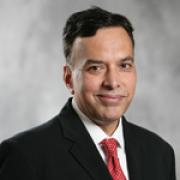This paper shows how social influences on individual decisions help resolve a public health puzzle–the inordinate effect of geography on treatment. To explain geographical variations, we construct a model in which physician choices are subject to social influence. Small regional differences in the patient population mix give rise to divergent treatment patterns–the treatment a patient receives depends on where she lives. The empirical analysis uses data from Florida on coronary patients and their doctors. The data reveal significant geographic variation in the treatment rates. We find empirical support for the claim that local social influences determine treatment choice.
Introduction
This paper deals with a general question and a specific puzzle. The general question is related to the effect of the social environment on individual decisions. Are medical decisions influenced by social and cultural forces and, if they are, what is the cost to society of departures from strict scientific standards? The specific puzzle in question is the well—documented effect of geography on treatment. The treatment that a patient receives depends, beyond reasonable limits, on where she lives. We use the idea that decisions are subject to social influence to provide an explanation of this public health puzzle. Conversely, the rich detail with which medical decisions are documented presents us with a unique opportunity to deepen our understanding of the effects of the social environment on individual choices. For, if medical decisions are influenced by social and cultural forces, why should other kinds of decisions be immune?
The Brookings Institution is committed to quality, independence, and impact.
We are supported by a diverse array of funders. In line with our values and policies, each Brookings publication represents the sole views of its author(s).



